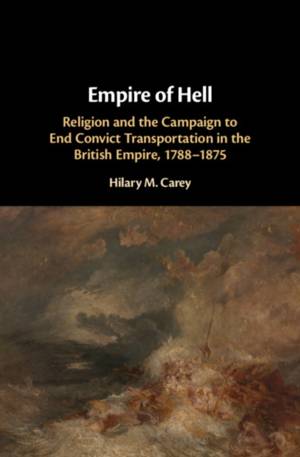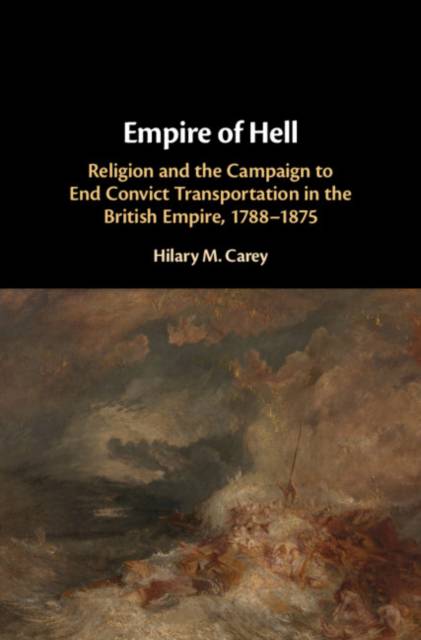
- Afhalen na 1 uur in een winkel met voorraad
- Gratis thuislevering in België vanaf € 30
- Ruim aanbod met 7 miljoen producten
- Afhalen na 1 uur in een winkel met voorraad
- Gratis thuislevering in België vanaf € 30
- Ruim aanbod met 7 miljoen producten
Zoeken
Empire of Hell
Religion and the Campaign to End Convict Transportation in the British Empire, 1788–1875
Hilary M Carey
Hardcover | Engels
€ 194,95
+ 389 punten
Omschrijving
This revisionist history of convict transportation from Britain and Ireland will challenge much that you thought you knew about religion and penal colonies. Based on original archival sources, it examines arguments by elites in favour and against the practice of transportation and considers why they thought it could be reformed, and, later, why it should be abolished. In this, the first religious history of the anti-transportation campaign, Hilary M. Carey addresses all the colonies and denominations engaged in the debate. Without minimising the individual horror of transportation, she demonstrates the wide variety of reformist experiments conducted in the Australian penal colonies, as well as the hulks, Bermuda and Gibraltar. She showcases the idealists who fought for more humane conditions for prisoners, as well as the 'political parsons', who lobbied to bring transportation to an end. The complex arguments about convict transportation, which were engaged in by bishops, judges, priests, politicians and intellectuals, crossed continents and divided an empire.
Specificaties
Betrokkenen
- Auteur(s):
- Uitgeverij:
Inhoud
- Aantal bladzijden:
- 372
- Taal:
- Engels
Eigenschappen
- Productcode (EAN):
- 9781107043084
- Verschijningsdatum:
- 2/05/2019
- Uitvoering:
- Hardcover
- Formaat:
- Genaaid
- Afmetingen:
- 218 mm x 236 mm
- Gewicht:
- 680 g

Alleen bij Standaard Boekhandel
+ 389 punten op je klantenkaart van Standaard Boekhandel
Beoordelingen
We publiceren alleen reviews die voldoen aan de voorwaarden voor reviews. Bekijk onze voorwaarden voor reviews.











